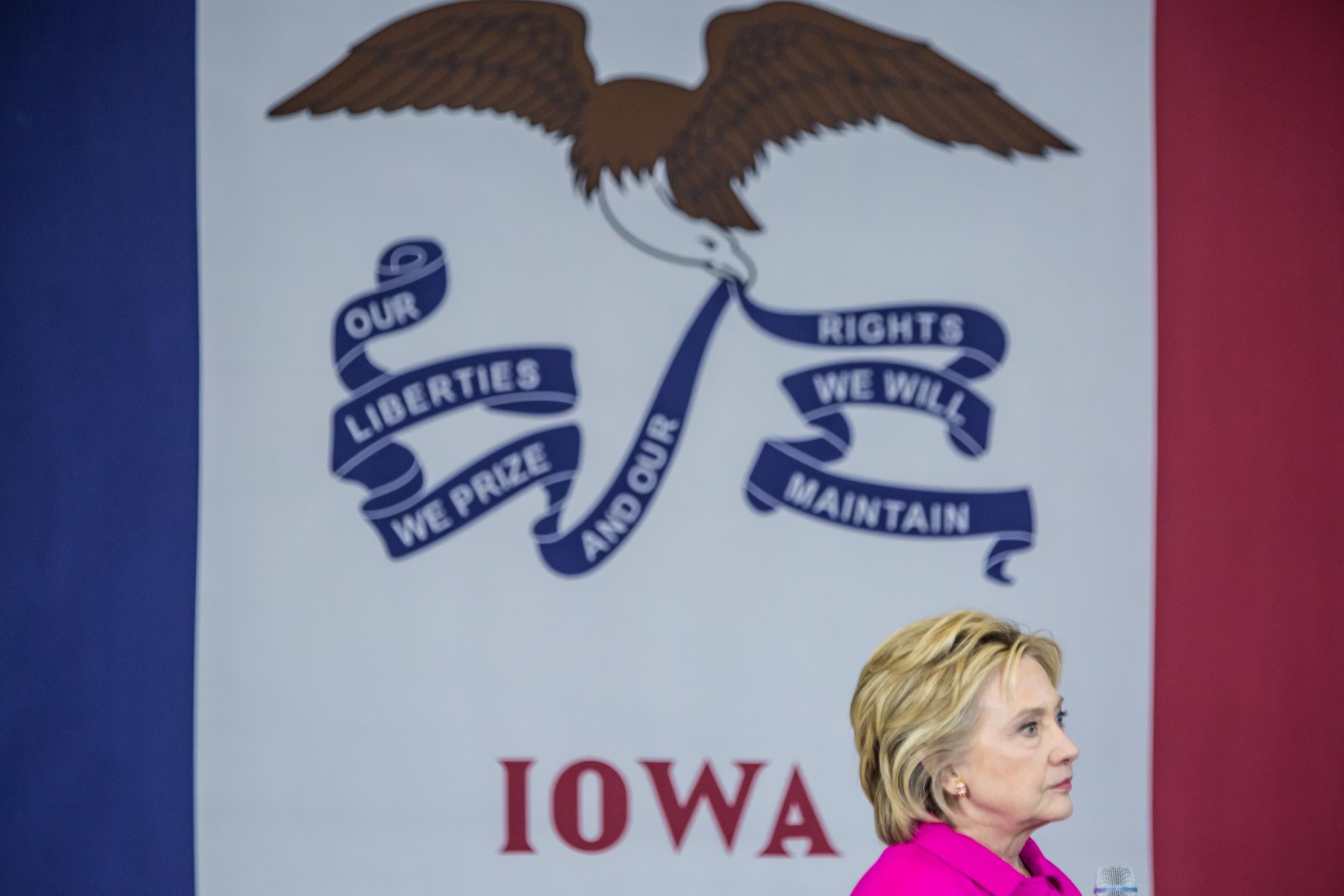Your support helps us to tell the story
From reproductive rights to climate change to Big Tech, The Independent is on the ground when the story is developing. Whether it's investigating the financials of Elon Musk's pro-Trump PAC or producing our latest documentary, 'The A Word', which shines a light on the American women fighting for reproductive rights, we know how important it is to parse out the facts from the messaging.
At such a critical moment in US history, we need reporters on the ground. Your donation allows us to keep sending journalists to speak to both sides of the story.
The Independent is trusted by Americans across the entire political spectrum. And unlike many other quality news outlets, we choose not to lock Americans out of our reporting and analysis with paywalls. We believe quality journalism should be available to everyone, paid for by those who can afford it.
Your support makes all the difference.The battle to see who will go head-to-head in the US presidential election begins in earnest today.
Candidates have been debating, running adverts, and making public statements, but not a single vote has yet been cast.
On Monday 1 February voters in the prairie state of Iowa will attend meet-ups called “caucuses” where they discuss the available candidates and make their choices.
Iowa is the first state to hold a vote
The main reason the Iowa Caucuses are important is because it is the first state in the US where a ballot is cast.
Despite being tiny, atypical of the rest of the US, and providing about 1 per cent of the nation’s delegates, the state is the first indicator of whether a prospective presidential candidate’s support is holding up.
The media interest generated by the timing of what would otherwise be a fairly insignificant part of the race to the White House means candidates can secure disproportionate positive coverage for a smaller amount of effort.
The early timing also means that candidates have more room to adjust their messages and programmes in response to the results – giving the state disproportionate influence.
Iowa is a sign of what lies ahead in the race
About half of the winners of the Iowa Caucus go on to win their party’s nomination for the presidency – meaning it isn’t a very good predictor of who will actually get the nomination.
Where the race is a better predictor is showing who is likely to get absolutely nowhere. A campaign with no real support makes contact with the electorate in Iowa for the first time, and it often isn’t pretty.
Since 1972 no Democratic of Republican candidate who finished worth than fourth place in the Iowa Caucus has gone on to win their party’s nomination.
Do not be surprised if a few of the many Republicans running this years drop out not too soon after Iowa.
It’s very difficult to predict who will win
Another reason the Iowa vote is important is because there are few reliable clues who is going to win it before it happens.
The archaic process of running a caucus – going around to a friend’s house and discussing politics before voting on it – means it can be difficult to tell who is even going to vote, nevermind how they will vote.
Local newspaper the Des Monies Register has the best track record with conducting polls but even they don’t get everything right – to see who the real winner is, the vote has to be conducted.
This is in contrast with more conventional primary elections where decent polls usually tell who the winner is. More surprises mean a bigger story when somebody does win, and a chance for more momentum.

Join our commenting forum
Join thought-provoking conversations, follow other Independent readers and see their replies
0Comments